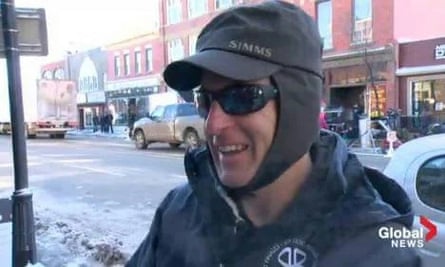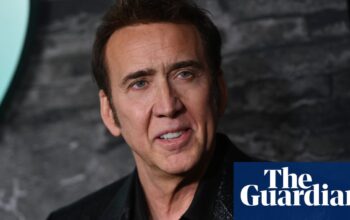Henry Winkler has long had a reputation as one of the nicest men in Hollywood. There is no situation that his presence cannot brighten up, something that was proved this week during a fire at Dublin’s 200-year-old Shelbourne Hotel.
Although the fire was by no means catastrophic, it did involve the evacuation of all the hotel’s guests, some of whom were met by reporters as they left. And one of them, you guessed it, was Winkler. “I called downstairs and the woman said in a very calm voice, ‘Yes! We’re all evacuating! You must evacuate right now!’,” he told RTÉ News. See? Charming.
However, it seems that nobody at RTÉ News knew that the lovely animated man they were speaking to was Winkler. Maybe they had never seen the comedy series Happy Days or Arrested Development or Barry, and were oblivious to the fact that he was visiting the city to promote his memoir. Either way, at no point during the interview did they reference the fact that they were talking to The Fonz.
Stranger still, this is by no means an isolated incident. Just last week, TikTokker Georgia Godworth made the news after she stopped a man on the street to discuss his sex life (“the person I’m married to and I found our own really genuine and authentic concept of what our contract to each other should be,” if you’re interested) without twigging that the man was the acclaimed director Baz Luhrmann. Not even when he halted the interview to move her camera to a more aesthetically pleasing angle.
“But the same mistake happening twice in such quick succession is a coincidence,” you are saying. “This isn’t really a trend until it’s happened at least three times.” In that case, let me point you to this April, when the same thing happened to Chloë Sevigny. She was walking around, minding her own business, when an interviewer popped out of nowhere and asked her about her clothes (her fashion inspiration is “the weather,” she said). Once again, at no point did the interviewer even come close to suggesting that he knew who Sevigny was.
Now, this sort of thing has happened before. The NFL player Adrian Peterson was once stopped in the street and grilled by an oblivious reporter. And the same thing happened to Bob Odenkirk, who was stopped in the street during production of Fargo to answer questions about why there were suddenly so many people filming all over the place. However, these examples are old, and happened far apart. What is happening now is far more terrifying. Celebrities are going outside and not being recognised. This is a calamity. If you are a celebrity and people don’t know who you are, do you even count as a celebrity?

There seem to be two main reactions to this. The first is to side with the interviewers for a moment. Because recognising people is really hard. Unless you have total visual recall of every person who has ever made or starred in a film or television programme since the dawn of filmed media, you would probably find it impossible to place someone if they ambushed you cold, too. It’s even hard to recognise people when you’re expecting them. Go to any awards show red carpet and you will find teams and teams of people clutching clipboards. You know what’s on those clipboards? Hundreds and hundreds of pictures of people’s faces with their names underneath. That’s the level of research required to know who people are. What hope does a poor vox-popper have in comparison? Especially when the talent is either concealing their face with sunglasses (Sevigny, Odenkirk) or is primarily famous for working behind the camera (Luhrmann).
But then there is the other reaction. Watch any of these videos and you’ll see something quite sweet. Nobody – not Winkler or Luhrmann or Sevigny or Peterson or Odenkirk – minds a jot that they haven’t been recognised. They either engage earnestly with the questions asked of them (Winkler, Odenkirk), or they seem impishly amused by their own relative obscurity (Luhrmann, Sevigny). Either way, there isn’t a single glower, a hint of a “Do you know who I am?”, from any of them. This deserves to be acknowledged. Celebrities: they’re just like us, because most people don’t know who they are either.
Source: theguardian.com


